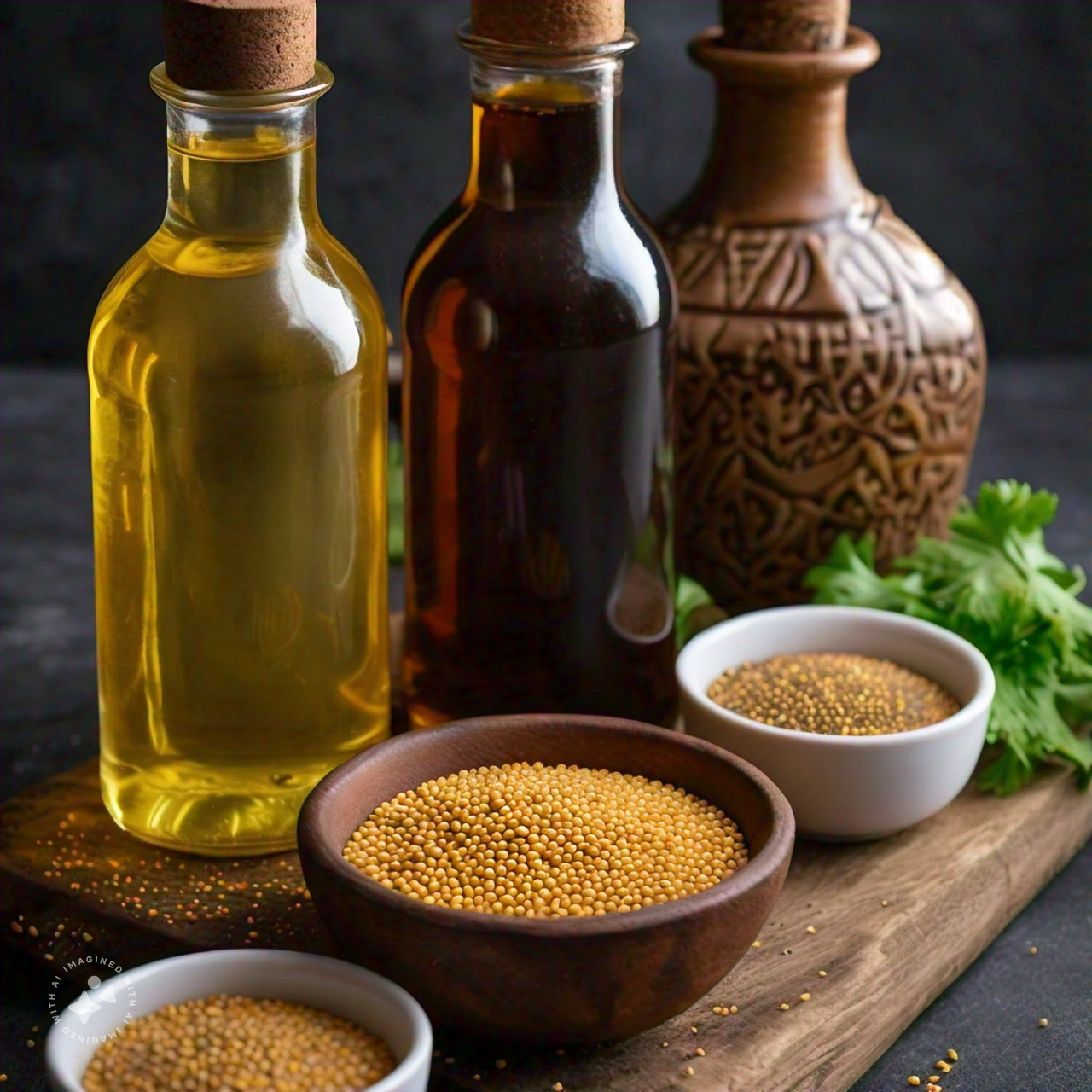You may have heard mustard oil being called “kachi ghani” or “sarson ka tel” in Hindi. It gets its name from the mustard seeds it’s made from. The traditional way is to crush those tiny seeds using a wooden pestle and mortar. It’s hard work but it gives you mustard oil with an intense, zingy aroma that’ll make your mouth water! These days, you can buy mustard oil online as well.
Types of Mustard Oil
Wood-pressed Mustard Oil:
This traditional extraction method involves crushing the mustard seeds using a wooden pestle and mortar. The process is labor-intensive but yields a mustard oil with an intense aroma and flavor.
Machine-pressed Mustard Oil:
In this method, mustard seeds are crushed using modern machinery, resulting in a more efficient extraction process. While machine-pressed mustard oil may have a slightly milder flavor compared to its wood-pressed counterpart, it is still widely used in Indian households due to its convenience and availability.
These days, most mustard oil is extracted by machines which is quicker but maybe not quite as fragrant. Either way, it still packs that distinctive mustard taste we all love.
Uses of Mustard Oil
So what makes mustard oil so special? It’s all about this compound called allyl isothiocyanate that gives it a bold, pungent flavor, unlike any other oil. As soon as you heat mustard oil, that powerful aroma is released into the air.
In Indian cooking, we often start by “tempering” the mustard oil. You heat it until it’s smoking, then throw in some spices like cumin, mustard seeds, chilies, and curry leaves. The spices get cooked in the hot oil and release their flavors. This tempered oil is then the flavorful base for dishes like dals, vegetables, or meat curries.
Mustard oil is also a top choice for deep frying. Those crispy pakoras, samosas, and fritters get their incredible taste from being dunked in sizzling mustard oil. Even simple stir-fries get a flavor boost when you use mustard oil for sautéing.
Benefits of Mustard Oil
But mustard oil isn’t just about the taste. Many people believe it has health benefits too. It’s high in healthy fats like monounsaturated and polyunsaturated fatty acids, which are good for the heart. There are also compounds in mustard oil with antioxidant and anti-inflammatory properties.
Some people say mustard oil aids digestion as well. The strong flavor is thought to increase enzymes that help break down food in the gut, akin to the digestive properties of Sri Sri Tattva. Of course, that spice may not be for everyone’s taste buds!
Whether you go for the traditional wood-pressed kind or the regular machine-made mustard oil, it brings such an authentic flavor to Indian cuisine. A drizzle of mustard oil instantly transports you to a bustling Indian kitchen with incredible aromas.
For many, the smell of kachi ghani mustard oil is the very essence of Indian food memories from childhood. It’s irreplaceable in so many iconic dishes like sarson da saag, aloo gobhi, and maa ki daal.



